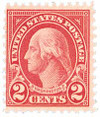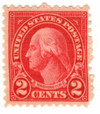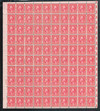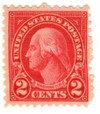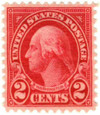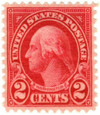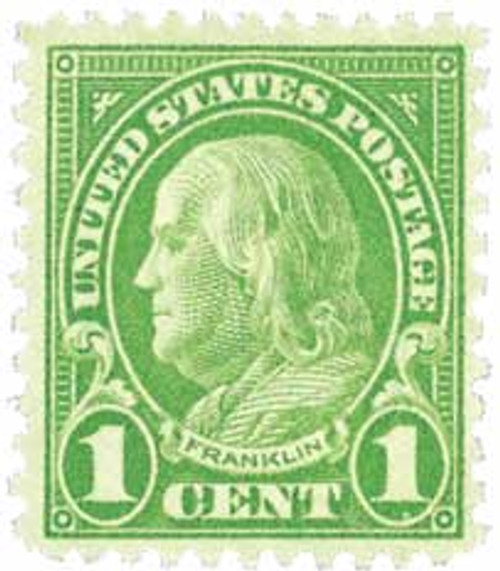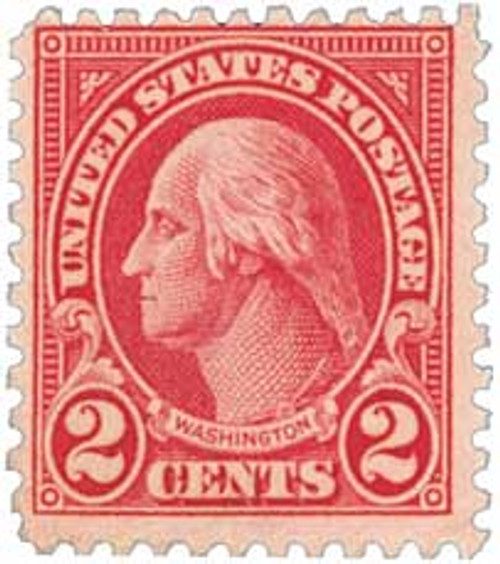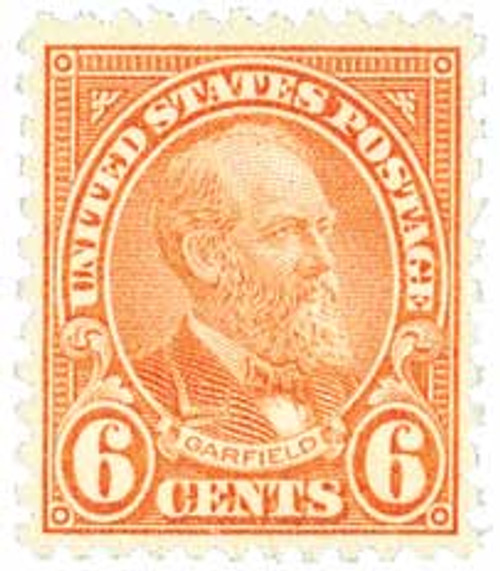
1926-28 2c Washington, carmine
# 634 - 1926-28 2c Washington, carmine
$0.35 - $65.00
U.S. #634
1926-28 Rotary Stamp
2¢ Washington
Perforated 11 x 10.5
1926-28 Rotary Stamp
2¢ Washington
Perforated 11 x 10.5
Issue Date: December 10, 1926
First City: Washington, DC
The 1926-28 rotary stamps used the designs of the flat plate Series of 1922-25. The 2¢ denomination pictures George Washington, who led the Continental Army to victory over the mighty British and served as our nation’s first President. One of the most moving tributes to Washington was his eulogy, given by Henry “Lighthorse Harry” Lee. Lee was the ninth Governor of Virginia, a cavalry officer in the Continental Army, and the father of Confederate General Robert E. Lee.
General Henry Lee’s Eulogy
to George Washington
to George Washington
George Washington died at his beloved Mount Vernon on December 14, 1799. Congress asked General Henry “Lighthorse Harry” Lee to deliver the eulogy. Sixteen cannons boomed at dawn on the morning of December 26, 1799, and volleys continued on the half hour throughout the day. A somber procession marched through Philadelphia, accompanied by a riderless horse escorted by two marines. General Henry Lee addressed a grieving audience that numbered more than 4,000. Of the fallen Commander in Chief, Lee said:
“First in war, first in peace and first in the hearts of his countrymen, he was second to none in the humble and endearing scenes of private life. Pious, just, humane, temperate and sincere – uniform, dignified and commanding – his example was as edifying to all around him as were the effects of that example lasting. Correct throughout, vice shuddered in his presence and virtue always felt his fostering hand. The purity of his private character gave effulgence to his public virtues. Such was the man for whom our nation mourns.”
U.S. #634
1926-28 Rotary Stamp
2¢ Washington
Perforated 11 x 10.5
1926-28 Rotary Stamp
2¢ Washington
Perforated 11 x 10.5
Issue Date: December 10, 1926
First City: Washington, DC
The 1926-28 rotary stamps used the designs of the flat plate Series of 1922-25. The 2¢ denomination pictures George Washington, who led the Continental Army to victory over the mighty British and served as our nation’s first President. One of the most moving tributes to Washington was his eulogy, given by Henry “Lighthorse Harry” Lee. Lee was the ninth Governor of Virginia, a cavalry officer in the Continental Army, and the father of Confederate General Robert E. Lee.
General Henry Lee’s Eulogy
to George Washington
to George Washington
George Washington died at his beloved Mount Vernon on December 14, 1799. Congress asked General Henry “Lighthorse Harry” Lee to deliver the eulogy. Sixteen cannons boomed at dawn on the morning of December 26, 1799, and volleys continued on the half hour throughout the day. A somber procession marched through Philadelphia, accompanied by a riderless horse escorted by two marines. General Henry Lee addressed a grieving audience that numbered more than 4,000. Of the fallen Commander in Chief, Lee said:
“First in war, first in peace and first in the hearts of his countrymen, he was second to none in the humble and endearing scenes of private life. Pious, just, humane, temperate and sincere – uniform, dignified and commanding – his example was as edifying to all around him as were the effects of that example lasting. Correct throughout, vice shuddered in his presence and virtue always felt his fostering hand. The purity of his private character gave effulgence to his public virtues. Such was the man for whom our nation mourns.”




